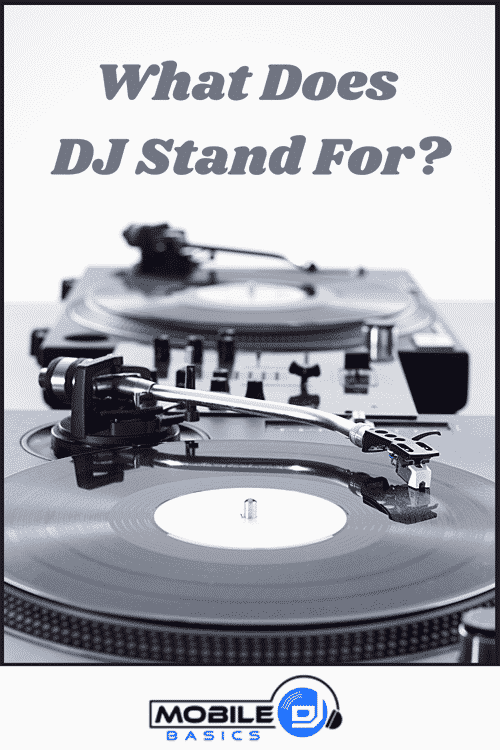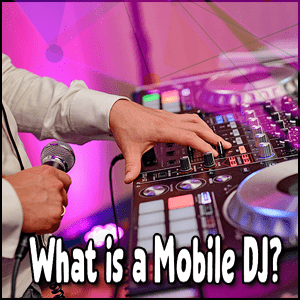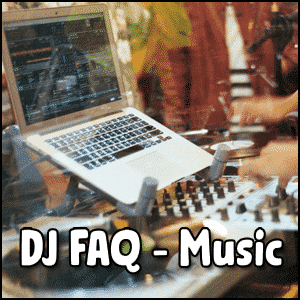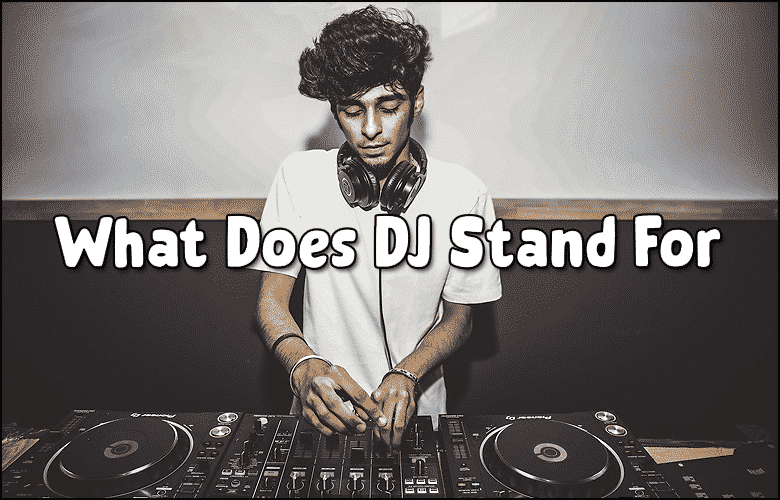
Today, it’s almost impossible to find someone that hasn’t heard the term “DJ.” However, as much as it’s popular, most individuals still don’t know what it means. Also, instead of one, there are five types of DJs.
What Does DJ Stand For?
A DJ is a person who plays music at parties, weddings, clubs and other events. Most people think that the word DJ stands for “disc jockey,” this may be true but it’s not 100% accurate.
The term “DJ” can stand for many different things including: disk jockey (someone who selects records to play), dancer (someone who dances), disc jocky (a musician playing discs of recorded sound) or digital jockey (who mixes digital files on a computer).
The 5 Different Types of DJs
While many people think that there is only one DJ (Disc Jockey) type and they all do the same, it’s quite the opposite.
Below, you’ll find the five types of DJs along with information on what they do.
Radio DJs

Radio DJs are the personalities you hear when you tune in to your favorite radio shows.
They can go solo, pair, or by a team, depending on the segment or script.
Typically, they emanate a fun and interactive personality.
During shows, Radio DJs serve as hosts that read stories, chat with the audience, or convey news.
While most segments employ one person, many require a dedicated host and another assigned to operate DJ tools.
Mobile DJs
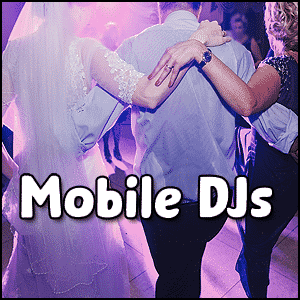 Mobile DJs are exactly that — Mobile. People hire them to play recorded music at events like weddings, birthdays, school dances, proms, and other private celebrations.
Mobile DJs are exactly that — Mobile. People hire them to play recorded music at events like weddings, birthdays, school dances, proms, and other private celebrations.
It would be easy to think that these DJs only download a lot of music. And then set up their speakers at the venue and push play, but there can be a lot more to it than that.
A large portion of a Mobile DJs job entails:
- finding new music
- checking their equipment
- screening songs to make sure that they will be appropriate to play during the event
- setting up and tearing down their equipment at each venue
Event DJs
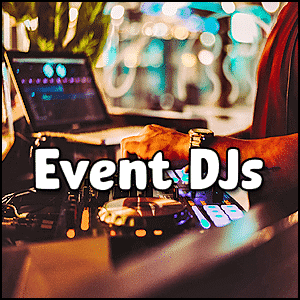
As you may imagine, event disc jockeys are similar to mobile DJs. The difference is that they typically specialize in particular corporate events.
The type of celebrations that these DJs are involved in varies drastically, including:
- Corporate events (company parties, store events)
- Fundraiser Events (Gala, Auction)
- Fashion Shows
- Traditional events (New Year’s Eve parties etc.)
- Private Events (anniversaries, graduation balls)
Club and Bar DJs
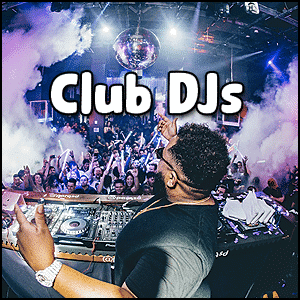
Club DJs are very similar to Mobile and Event DJs – in the sense that they are providing the music that is played during events in bars or at clubs.
These people are constantly refining their knowledge of the industry to ensure their mixes are perfect. Whether it’s the music they’re making themselves or songs they’re piecing together, they want each track to be a crowd-pleaser.
The main differences with club DJs would be that they almost exclusively focus on clubs and bars, and they focus a lot more on making their music by mixing tracks and using other techniques.
EDM Touring DJs
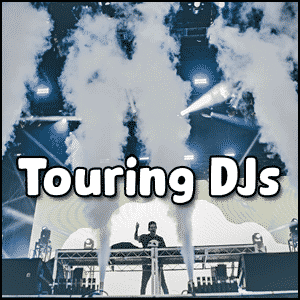
EDM (electronic dance music) touring DJs perform exclusively at their gigs. They will sometimes perform at large clubs in Las Vegas and other dedicated EDM festivals.
Unlike others, some Touring DJs make their music, beats, and vocals. Though, some are also known for producing excellent mixes and renditions of existing songs.
Simply put, they are always on the move.
Conclusion
A DJ, D.J., Deejay, or Disc Jockey in formal terms, is not just the cool kid at the party that plays recorded music or custom blended music for the crowd. We hope this article has helped you understand the different types of DJ’s
Now you know what DJ means – What Type of DJ Do You Want to Be?
